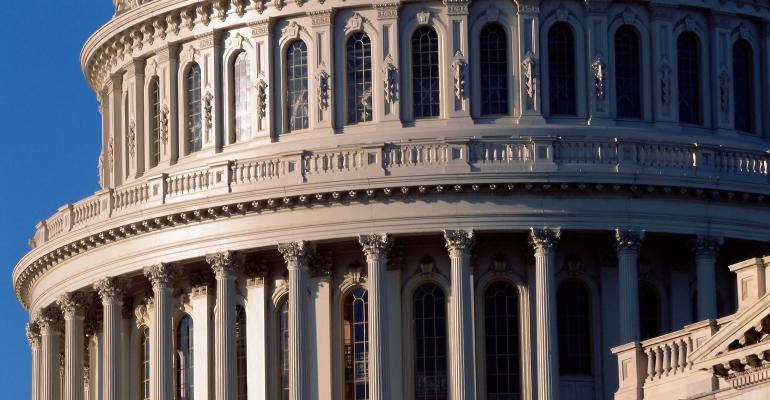The Department of Labor will likely take another crack at redefining who is and is not considered a fiduciary in the coming year, according to Schwab’s leading regulatory expert, who also expected the Biden administration’s nomination to lead the department’s Employee Benefits Security Administration (EBSA) would be confirmed “later this fall.”
Michael Townsend, Schwab’s managing director of legislative and regulatory affairs, spoke about the latest developments out of Washington, D.C. during a session at Schwab’s virtual IMPACT conference this week. Townsend detailed the latest news in Congress, Democrats’ debates on infrastructure legislation and priorities for Securities and Exchange Commission examiners.
Townsend believed EBSA nominee Lisa Gomez would likely be confirmed, having completed her hearing before the Senate Health, Education, Labor & Pensions Committee. Townsend said Gomez’ main order of business would be the future of the DOL’s fiduciary rule, which he sarcastically referred to as advisors’ “favorite issue” considering it’s entering its second decade of debate. Townsend said the industry had zeroed in on DOL language from April stating that the department anticipated “taking further regulatory action.”
“That is widely seen as the Biden administration is going to be the next administration to take a stab at redefining who exactly is a fiduciary in a retirement context and what that means,” he said.
Townsend also said the DOL might delay the enforcement date on the fiduciary regulation passed in the waning weeks of the Trump administration, as many in the industry have urged the department to do (the rule is set to go into effect on Dec. 20).
Townsend said there was significant fallout at the SEC as a result of the GameStop controversy from earlier this year, citing the release of a report this week on what transpired (which he noted did not contain any policy prescriptions). While SEC Chair Gary Gensler may want to take a broader look at gamification and whether investors are getting best execution, Towsend stressed these are “huge issues” and did not expect immediate changes.
Townsend said SEC examiners would be focusing on Form CRS compliance, as well as disclosures on fees, expenses and conflicts, and the appropriateness of ESG recommendations in the coming year. He also argued that the crypto space, which has been the subject of continued media focus, was realizing that it could benefit from the “regulatory legitimacy” that would come with some SEC rulemaking in the space.
“I think that’s a reality the industry is probably coming to grips with,” he said.
Townsend said the Democrats’ "razor-thin" majorities in the House and Senate made it difficult to prognosticate what would remain in the bipartisan infrastructure legislation and the larger economic package currently being debated. Townsend said the House Ways & Means Committee had proposed a corporate rate increase to 26.5% for companies earning more than $5 million per year (though that number could change), with a proposal to revert the individual income tax rate back to 39.6%.
Lawmakers have proposed that the estate tax exemption be lowered from $11.7 million to $6 million, which Townsend said had “pretty strong support.” Legislators also have pushed for the top capital gains tax rate to move to 25% as of Sept. 13 for people making more than $400,000 a year. Townsend wished he could be more definitive about what would be included in the legislation, but he believed things were “less clear” than just one month before.
“That’s because all of these negotiations are going on that will shrink the size of the bill,” he said. “If you’re taking a bill that’s $3.5 trillion down to $2 trillion, you don’t need as much revenue. Some of these tax increases may be shrunk or will fall away, and we don’t know which ones."





